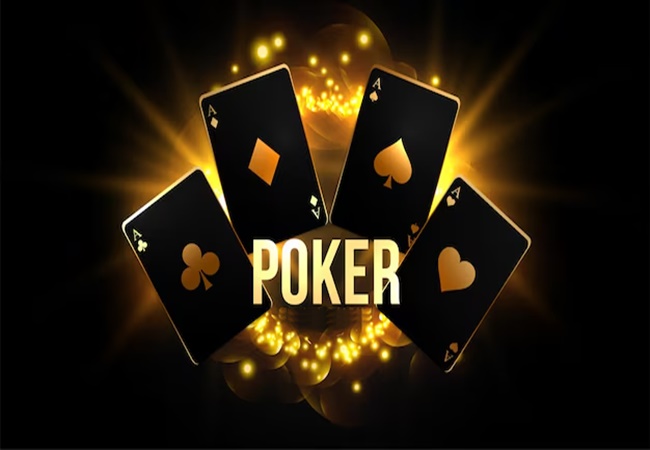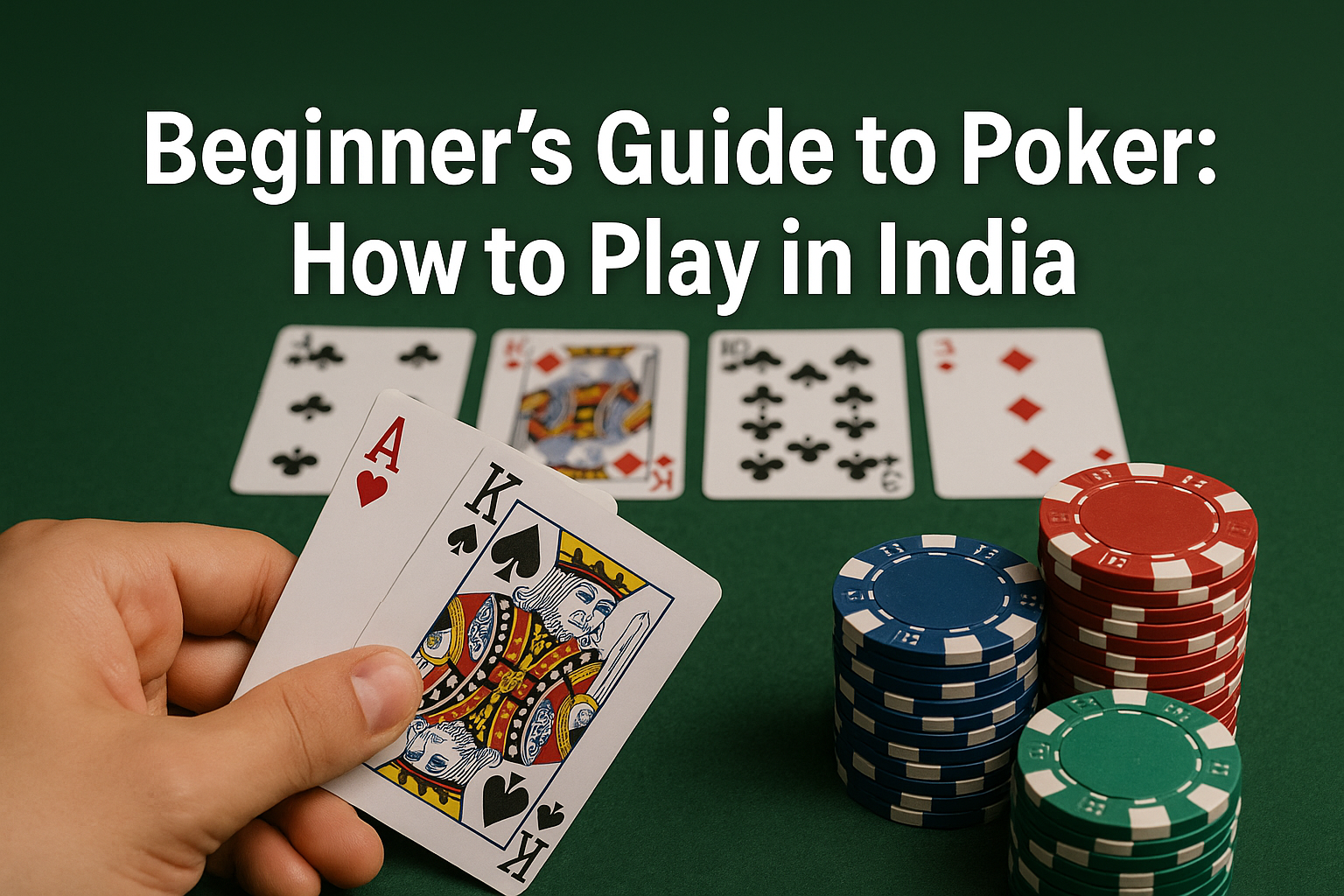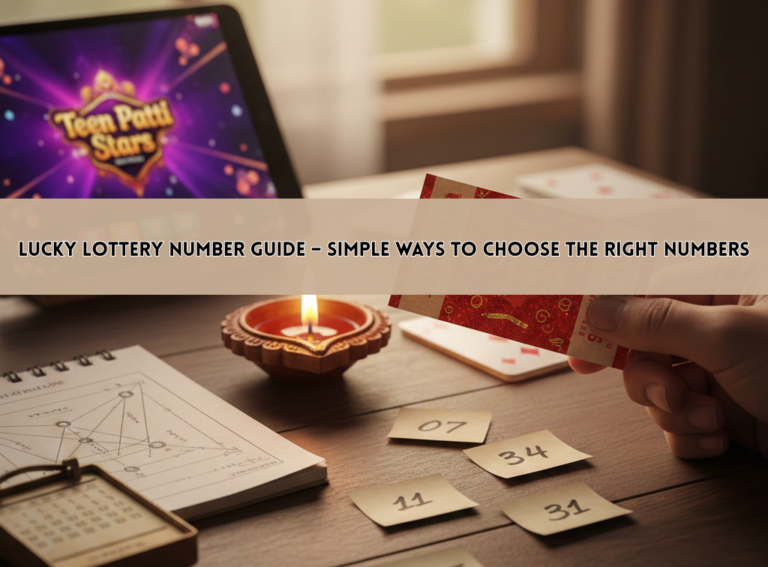Beginner’s Guide to Poker: How to Play in India
Poker game has become increasingly popular in India over the past decade. With the rise of online platforms, poker is no longer restricted to casinos or underground games—it’s now accessible from the comfort of your own home. Whether you’re interested in the thrill of competition, the strategy involved, or the chance to win real money, poker and Rummy games can be exciting and intellectually stimulating to learn. This beginner’s guide will walk you through the basics of poker and how to get started playing in India.

What is Poker Game?
Poker is a card game that combines skill, strategy, and a bit of luck, much like popular games such as Teen Patti Stars. The goal is to create the best hand possible and either win by having the highest-ranking hand at showdown or by betting in a way that causes other players to fold. There are several variations of poker game, but the most popular one—especially for beginners—is Texas Hold’em.
Understanding the Basics of Texas Hold’em
In Texas Hold’em, each player is dealt two private cards (known as “hole cards”) that belong only to them. Five community cards are dealt face-up on the “board.” All players use these shared community cards in conjunction with their hole cards to each make their best possible five-card poker hand.
The game is divided into four betting rounds:
- Pre-flop – after players receive their hole cards.
- Flop – when the first three community cards are dealt.
- Turn – when the fourth community card is revealed.
- River – when the fifth and final community card is shown.
The objective is to use the combination of hole cards and community cards to form the highest-ranking poker hand, which is fundamental to how Poker works.
Poker Game Hand Rankings
Understanding hand rankings is crucial. Here are the hands from highest to lowest:
- Royal Flush – A, K, Q, J, 10, all of the same suit.
- Straight Flush – Five cards in a sequence, all of the same suit.
- Four of a Kind – Four cards of the same rank.
- Full House – Three of a kind plus a pair.
- Flush – Five cards of the same suit, not in sequence.
- Straight – Five cards in a sequence, any suits.
- Three of a Kind – Three cards of the same rank.
- Two Pair – Two different pairs.
- One Pair – Two cards of the same rank.
- High Card – When you have none of the above, the highest card plays.
Poker in India: Legal and Growing
In India, poker game falls into a gray area when it comes to legality, but there is a growing consensus that it is a game of skill. This classification makes it legal in several Indian states such as West Bengal, Karnataka, and Nagaland, where specific licenses for online poker platforms have been issued.
However, the laws vary by state. For example, Tamil Nadu and Andhra Pradesh have imposed restrictions on online gaming, including poker game. Therefore, it’s important to check your local regulations before playing.
Online Poker Platforms in India
Several online Poker sites cater specifically to the Indian audience. Popular platforms include:
- Adda52
- PokerBaazi
- Spartan Poker
- 9Stacks
- BLITZPOKER
These platforms offer games in Indian Rupees (INR), provide localized payment methods like UPI, Paytm, and net banking, and host regular tournaments with lucrative prize pools.
Getting Started with Online Poker
Here’s how to begin your poker game journey in India:
- Choose a Reputable Platform: Pick a licensed and secure site or explore trusted Poker apps for safe gameplay. Read reviews and verify that the platform is compliant with Indian gaming regulations.
- Create an Account: Sign up using your email or mobile number. Most sites will ask for ID proof for KYC verification, especially when you want to withdraw winnings.
- Start with Free Games or Low Stakes: Many platforms offer free-to-play tables or low buy-in games that are great for beginners to practice.
- Learn the Rules: Most sites offer tutorials and demo games. Take advantage of these resources.
- Bankroll Management: Set a budget for how much you are willing to deposit and never chase losses. Poker game is as much about managing your money as it is about playing smartly.
- Participate in Tournaments: Once confident, join freeroll or small-stake tournaments. They are fun and provide great learning experiences.

Tips for Beginner Poker Players
- Be Patient: Don’t play every hand. Wait for strong starting hands and fold weak ones.
- Pay Attention: Observe other players’ actions and betting patterns.
- Bluff Wisely: Bluffing is part of poker game, but overdoing it can lead to big losses.
- Study the Game: Watch videos, read books, and learn from professional players.
- Play Responsibly: Poker game can be addictive. Set time limits and financial boundaries.
Live Poker in India
While online poker is more common, live poker is also available in India, particularly in cities like Goa and Sikkim where casinos operate legally. These live poker rooms offer Texas Hold’em and other variants in a professional setting.
Popular Poker Variants
Besides Texas Hold’em, you can try other variants like:
- Omaha: Similar to Hold’em, but you get four hole cards and must use two of them.
- Pineapple: You get three hole cards and discard one after the flop.
- Seven Card Stud: No community cards; players make the best hand from seven cards dealt to them.
The Poker Community in India
India has a growing community of poker game enthusiasts, bloggers, streamers, and professionals. Some Indian players have made a name for themselves internationally, such as Nipun Java and Aditya Agarwal. Many platforms host community events, discussion forums, and coaching sessions that help new players improve.
Poker and Taxation in India
Winnings from poker games are subject to taxation under Indian law. If you win a substantial amount, the platform may deduct TDS (Tax Deducted at Source), typically 30% on net winnings above ₹10,000. Always consult a tax advisor for accurate filing if you’re earning regularly through poker game.
Final Thoughts
Poker is an engaging blend of skill, psychology, and strategy. In India, it’s more accessible than ever before, thanks to the rise of online platforms and a growing community of players. Whether you’re playing casually with friends or aiming to win big in online tournaments, learning the fundamentals and playing responsibly are key.
Start slow, stay consistent, and enjoy the game—poker is a journey, and every hand you play teaches you something new. With practice and patience, you can not only master the game but also be part of India’s rising poker scene.








